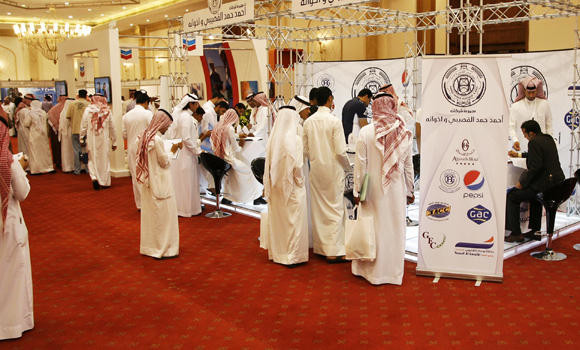Top businessmen and economists in the Kingdom are unanimous in their opinion that the crackdown against illegal workers following the end of the amnesty period would only benefit the Saudi economy in the long run though short-term obstacles may be encountered.
The move will help eradicate the gray economy, besides creating more job and investment opportunities for young citizens, they said.
Under the new labor laws, the government is seeking to increase the number of citizens employed in the private sector by introducing job quotas for citizens. Companies failing to comply with the nationalization scheme will have to face penalties.
Ihsan Bu Hulaiga, a Riyadh-based economic analyst, told Arab News: “We need legal expats for our economy to grow. Once illegals expats are sent back home, we can enumerate the total strength of the legal work force in the Kingdom, what they do and which cities they are based in. This will be relevant to analyze and formulate business policies for the future.”
Bu Hulaiga said: “What we are witnessing now is that illegal foreign workers are at large. They are in hiding and will surface after the raids are carried out in various places. This phenomenon will not continue forever. They will have to emerge eventually.”
He said: “The campaign is not about expats in general but about illegal workers. There are hundreds of thousands workers who are working for people other than their original sponsors. They also own businesses which are not regulated, resulting in economic chaos, which cannot be allowed to continue.”
“The flushing out of illegals will also help in controlling the gray economy,” he said.
Faisal Alsayrafi, president of the Financial Transaction House, said small businesses will be impacted because most of them are not regularized.
Basil Al-Ghalayini, CEO of BMG Financial Group, said: “In the short term, many labor-intensive businesses, which include the contracting, education, maintenance and healthcare domains, will suffer, while the long-term impact is still to be tried and tested.”
Al-Ghalayini said the corrective measures would open a new window of opportunity for young Saudi professionals.
Economists expect new era in KSA labor market
Economists expect new era in KSA labor market











